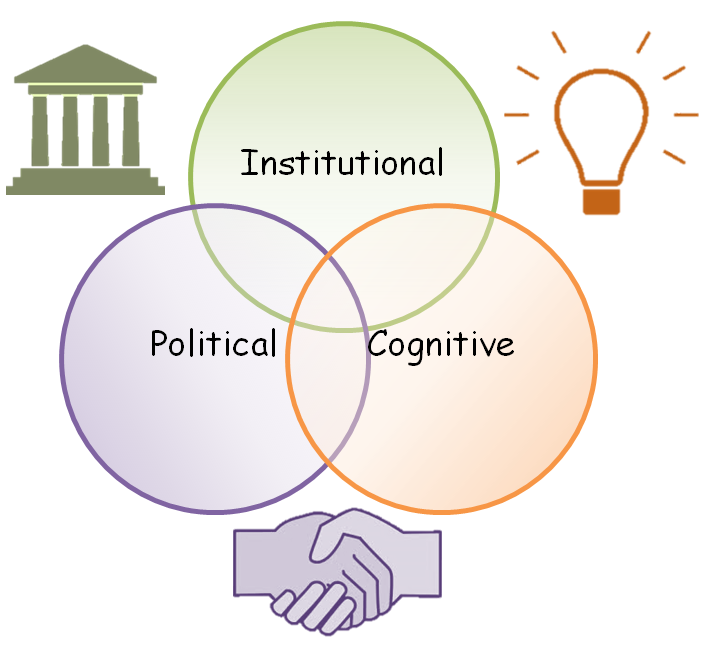Sticking points - implications for environmental management
Published on 21 August 2015 in Sustainability and Communities
Introduction
There are many new approaches to improve environmental management practices and projects, such as the Ecosystem Approach. However, attempts to implement these new ideas are often frustrating and may not achieve all of their aspirations. Understanding why can help to improve the outcomes of environmental management. One reason why projects get stuck and fail to deliver all they set out to do is, quite simply, that these projects are trying to do something new. This briefing highlights the importance of understanding how different types of legacy effect can create ‘sticking points’ that shape our new projects and efforts to improve environmental management.
Key Points
What is the problem? Many projects or initiatives for managing our environment are attempting to work holistically and inclusively. For example, a project manager may involve several different types of people and groups in planning and managing. They may attempt to integrate many different issues and objectives, and consider how these issues and objectives interact with each other.
Taking a participatory and holistic approach is inherently difficult. It can also be challenging simply because it differs from how we tended to approach environment management in previous decades. In most of the last century, environmental management was typically conceived of as a top-down process, which focused on managing specific sites or resources for certain issues (e.g. to control pollution, or to manage a single species). Many of our institutions (ideas, rules and organisations) reflect these ideas, as they were established during this period.
These pre-existing ways of managing can produce a variety of legacy effects that shape or constrain any new approaches. These effects are ‘sticking points’. It is important to understand legacy effects in order to understand where and why we may ‘get stuck’.
What kinds of sticking points are there? Legacy effects can give rise to three types of sticking points that may shape new projects.
-
‘Institutional’ sticking points – from previous ways of working e.g.regulatory standards
-
‘Cognitive’ sticking points – from previous ways of thinking or framing issues
-
‘Political’ sticking points – from previous relations shaping who holds power
For example, a new project might aim to work with new stakeholders, but encounter problems because staff lack experience and resources to facilitate partnership planning and multi-stakeholder decision-making. Meanwhile, their attempts to consider the interactions between multiple issues might be hampered by the structure of existing data sets and the requirements of pre-existing statutory protections. It is important to note that sticking points can be quite obvious and tangible (e.g. adminstrative stuctures, laws) but also intangible (e.g. ways of thinking about an issue, workplace cultures).
Research Undertaken
This research was supported by the Scottish Government’s RESAS Strategic Research Programme 2011-16.
Policy Implications
Focusing on legacy can also provide useful insights for those who seek to encourage new approaches to environmental management.

Firstly, project managers should explicitly scope and record potential sticking points during planning, and can then identify how to proactively tackle them. For example, if new skills will be required to work with people, personnel should seek training in this. Secondly, monitoring and evaluation programmes need to recognise that legacy effects will often slow the progress of attempts to do something new. In order to fully understand and evaluate the progress of a project, it is necessary to understand the legacy effects that the project has had to overcome.
Lastly, there are also implications for other groups, such as funders or policy makers, who may be able to influence the sticking points that are beyond the control of individual project managers. It may be necessary to reconsider or update pre-existing rules, regulations or organisational processes, since these can all constrain the ability of a new project to work in new ways or achieve new goals.
Authors
Kerry Waylen kerry.waylen@hutton.ac.uk
Kirsty Blackstock kirsty.blackstock@hutton.ac.uk
Topics
Sustainability and Communities








